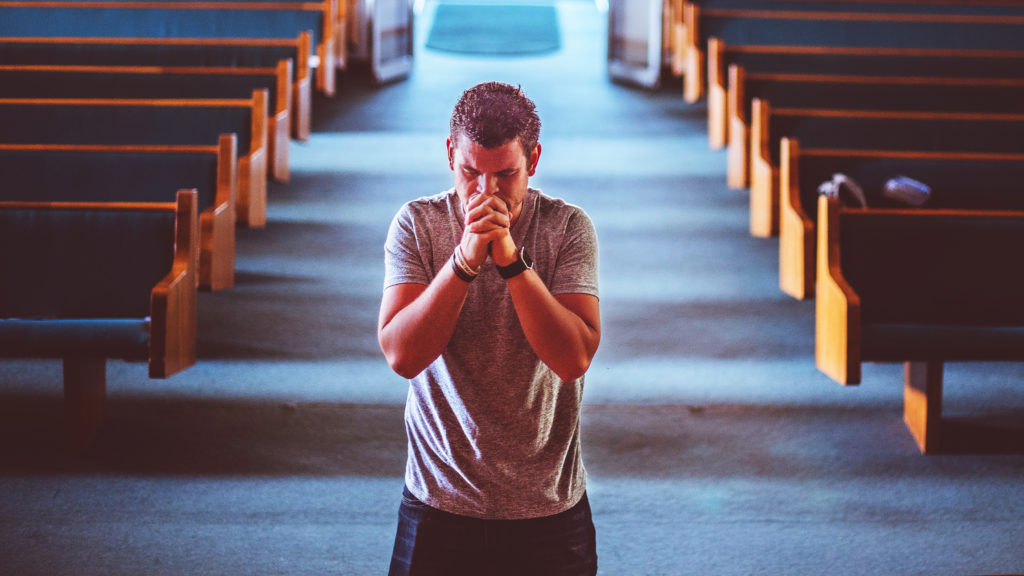Prison reform, prison overcrowding, funding for new prison facilities, prison problems, prisons, prisons, prisons — we’ve heard it, read about it and watched the news clips on it until we can’t process it any more.
I’m not sure many people even notice the media reports, legislative debates and pleas for help any longer. They have become white noise nagging at our consciences but easy enough to ignore if we aren’t personally affected. Plus when it comes down to it, the numbers, options for help and degree of hopelessness are all truly overwhelming.
But if we as Christians believe what we say we believe about the gospel, about grace, about forgiveness, about being a new creation in Christ, then why are we not walking alongside every single inmate striving to truly change? Why are we not knocking down the prison gates trying to make a difference?
Yes, discernment, appropriate boundaries and wisdom are needed in this area. Learning the dos and don’ts are a must.
But with nearly 1 million names on the rolls of the more than 3,200 Alabama Baptist churches, what type of reforms would naturally take place in the correctional system if every church was intentional about making a difference? If every church decided to focus on even one specific item needed by one specific chaplain at one specific prison facility? If each church saw the closest prison facility to them as a missions field?
Grace and forgiveness
What if church members prayed for those in prison by name? What if volunteers from the churches consistently showed kindness to those behind bars, sharing the gospel with unbelievers and encouraging believers? What if they intentionally built relationships, sincere relationships, with those on the inside?
And what if churches became an immediate and automatic support system for those in their congregations who have a family member in prison or jail? What if the church culture was a safe place without fear of shame for those families as they shoulder the pain and daily difficulties of having an incarcerated family member?
What if those same churches encouraged, mentored, loved on and discipled the incarcerated men and women who are seeking forgiveness and grace? And what if the church was present during court hearings, on visitation days and when those returning citizens walked outside the prison gates?
The re-entry period is critical, prison ministry advocates contend. Attempting to transition from behind bars alone most often is disastrous, they say, noting reports and statistics that prove the greater the support system, the greater the chance of becoming a positive, contributing member of society.
With more than half of those released from prison returning for parole violations or new crimes, it seems logical that an easy place to start on solving the overcrowding problem is at re-entry.
The federal government agrees, said a Prison Fellowship representative, noting billions of dollars a year go into re-entry programs. But the money, which is funded by taxpayers, is basically wasted when there’s no one to walk with and mentor the returning citizen. He described it like teaching someone to drive, giving them the tools to build a car and helping them build it, but then forgetting to provide a road on which to drive.
“We’ve got to provide the opportunity for people to know what they owe, pay it, be accountable … and live in a world where punishment has an end, where men and women with a criminal record are valued and can give back to their communities at their highest potential,” he said.
___________________
Rashional Extras – Who leads leader of God-initiated cause?
By Beth Bennett
Ministry Ventures
Being the leader of a God-initiated cause can feel lonely and vulnerable. We are constantly viewed as the visionary and executor, with followers waiting for us to communicate the next move. We hear from God, move forward in faith (and being OK with this feeling very foggy at times) and then try to get everyone else on board.
The longer I work with leaders, the more I realize that those called out front need regular infusions of fresh creativity and boldness to do what God has called them to do.
Leaders need leaders too.
Here are 3 things to consider:
- Leadership of the Holy Spirit. Follow God’s voice as we let Him lead and love us each morning, reading the Bible and letting the Bible lead us. Without His nourishment and care, the confidence we need to lead just isn’t there. Unless the Lord builds us personally and this house of ministry, we labor in vain.
- Leadership of the Body. Regularly look for places where God is working in bigger movements.
Webinars. Retreats. Training seminars. Your church. Desire to be led by the prophetic voices in the Body of Christ and eagerly submit to their teaching. Hearing their insights will resonate with what God is doing in you, will give wind in your sails, the needed courage to carry on and could keep you from a big mistake. The Body of Christ is meant to be guardrails for us.
- Leadership of books. A leader is a reader. … Books should be our mentors and friends.
What character trait sticks out from these three? Humility. Leader, recognize your need to follow. This will give you the authority to lead well.
Realize that God has resources right in front of us to sharpen, encourage and breathe fresh faith on us as leaders. And all we have to do is follow. Then we will thrive.
(www.ministryventures.org)
________________________
I can remember going to the pulpit a time or two with anger, lashing out at the congregation because of one or two members. I came to quickly regret this. If the pulpit is used in this way it becomes a “coward’s castle” as Charles Spurgeon once said. In my better moments I try to remember Ephesians 4:15: “speaking the truth in love.”
Moral issues must be addressed, but should less weightier issues such as the interpretation of some passages? For example, there are at least four major theories about the return of Christ. We need the wisdom of God to know what needs correcting with Scripture and what should be overlooked as simple interpretive differences between sincere brothers and sisters in Christ. Augustine wrote: “in essentials, unity; in doubtful matters, liberty; in all things, charity.”
Pastor Michael J. Brooks
Siluria Baptist Church
________________________
Social media is now part of the world culture. It can be used for good or for evil; to build up or to tear down. As Christians, our call to live different than the world should be evident in what we post or tweet.
Bucky Kennedy
Buckykennedyministries.org
________________________
@johnmarkclifton
Pastors of churches less than 100. As you prepare for Sunday 1. Love the church you have not the one you wish you had 2. Model for your church that your joy is in Jesus not the attendance. 3. Don’t apologize for what your church lacks but rejoice in what you have — the risen Christ.
@BethMooreLPM
It will become increasingly vital that we learn to distinguish between what is pro-Christian and what is actually Christlike.
@GaryFenton07
Mediocrity is not simplicity. Simplicity requires intentional excellence while mediocrity requires only acceptable effort.






Share with others: